“What’s the point of putting a guitar on the wall and not playing it?”: Bloc Party’s Kele Okereke on embracing the instrument on new solo LP
The Bloc Party frontman on losing himself in looping on new solo album The Waves Pt. 1 and why his band are feeling fired up as they return to the studio.
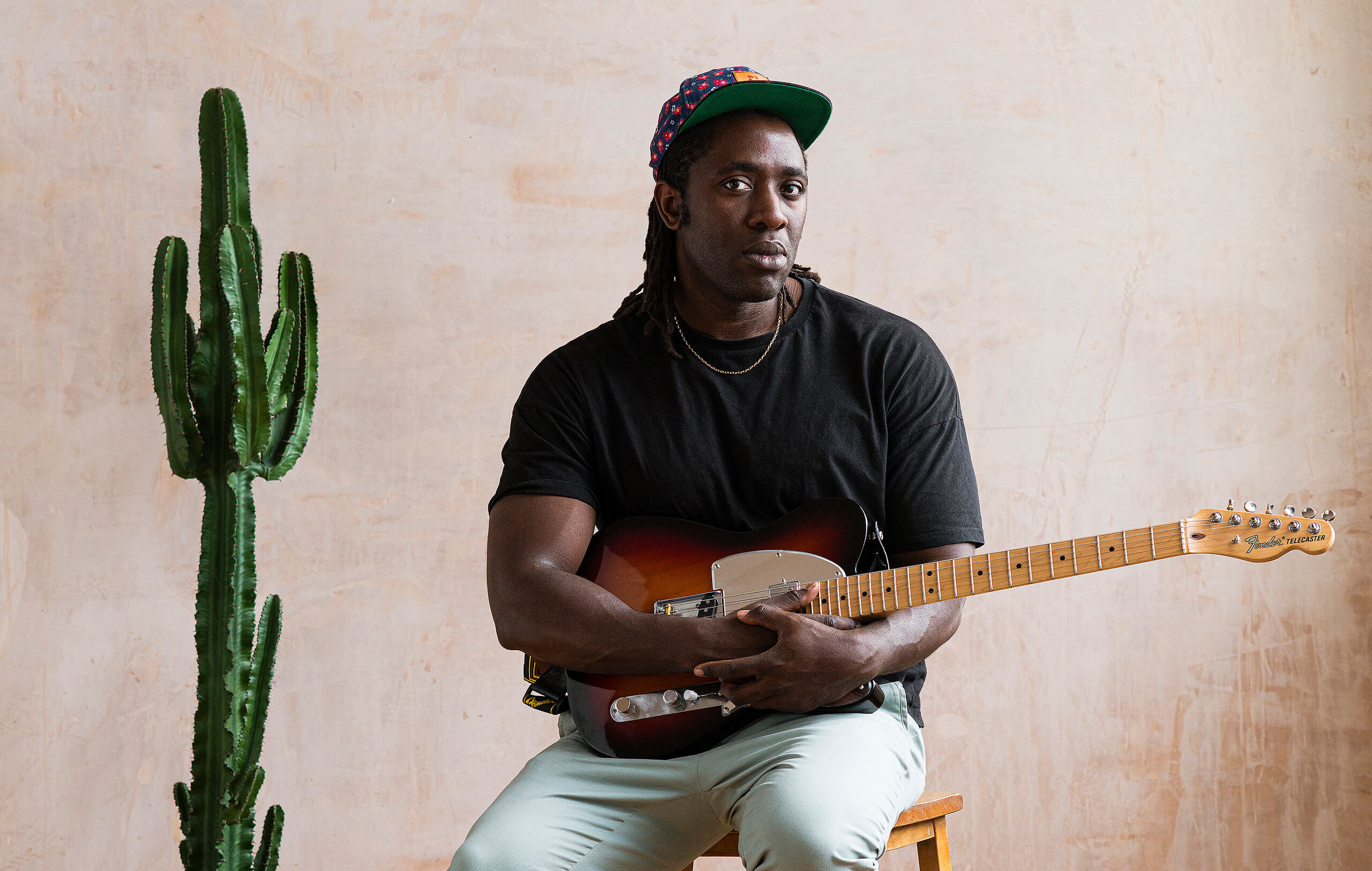
Image: Eleanor Jane
Back in January 2020, Kele Okereke had plans. Bloc Party were about to go into the studio to record their sixth album and he was due to start work on his second musical. When those ambitions were grounded by a global pandemic, the 39-year-old Londoner suddenly found himself a locked-down stay-at-home father to two children, with little time for music. Yet two things were about to happen that would reignite Okereke’s passion for the electric guitar: he started embarking on midnight walks alone around the deserted streets of the capital, and his guitar tech built him a new two-amp recording setup that helped him to unlock the creative potential of looping.
Before long, Okereke was deploying the new rig and his ever-present Telecasters on Instagram, entertaining the Zoom-quiz fatigued masses by performing Bloc Party songs and covers. He was also returning from those moonlit excursions with a brain fizzing with ideas. After 20 years as the rhythm man overshadowed by Bloc Party’s more flamboyant sonic architect Russell Lissack, and a solo career that’s frequently sidelined his primary instrument, it was time to step into the spotlight. The Waves Pt. 1, a meditative collection fashioned from cycling loops and interweaving arpeggios, is Kele Okereke’s first true guitar album.
“It was only once I started making solo records that I started to think seriously about my guitar playing and me as a musical entity, not just the rhythm guitarist in Bloc Party,” Okereke explains. “And it’s only on The Waves that I’ve really embraced the art of playing guitar. Although there are two guitarists in Bloc Party, Russell did a lot of the most dramatic, exciting moments, and he’s a phenomenal guitar player.”
Tools for the job
Okereke first picked up a guitar at 13, sneaking into his sister’s bedroom to learn chords on her Spanish-style acoustic. Growing up with parents who were “not very musical”, he was drawn as a teenager to British indie heavyweights Graham Coxon, Bernard Butler and Jonny Greenwood, alongside US alt-rock innovators such as Thurston Moore and Stephen Malkmus. Using the guitar primarily as a songwriting tool, he met the perfect foil in Lissack while he was studying for his A-Levels, forming Bloc Party at Reading Festival in 1999.
“It was super-interesting when I started playing guitar with Russell, because he was the opposite of me,” Okereke recalls fondly. “He had this awesome party trick at school, you could name any song and he’d play the riff. He had a Boss DD-3 delay and we bonded over our love of pedals and soundscapes they could make. We had an interest in the sonic capabilities of the guitar, and the guitarists we liked were more sonically adventurous. Mogwai’s Young Team was a significant record for us both, and also going out to clubs, listening to rave music. We realised there was more the guitar could do than strumming chords. We wanted to make our own noise.”
Bloc Party’s early singles introduced a wiry, adrenal post-punk sound, with frenetic, skittish riffing and intelligent use of delay tempos and live looping. Lissack’s pedalboard quickly grew to enormous proportions as their 2005 debut Silent Alarm landed at No.3 in the UK chart, selling a million copies. Within four years, the band had three top 10 albums.
“We just assumed that was what everyone went through,” Okereke reflects. “We realise now, we were very lucky to be plucked out of obscurity and have an international audience care about us. That isn’t what all bands starting out go through.”
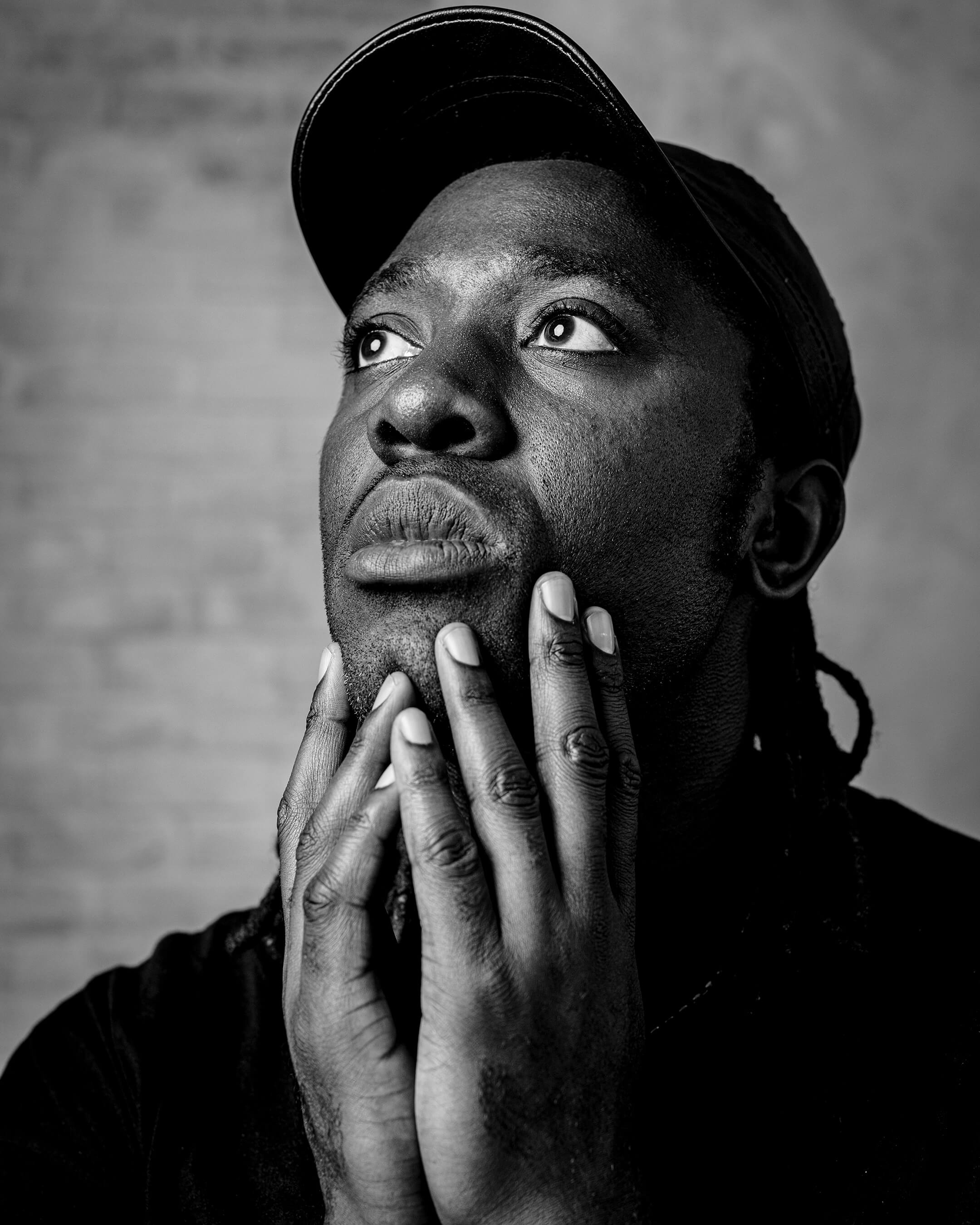
Off the wall
Avowedly not a gearhead, Okereke has stuck largely to Telecasters since then, using “whatever was in the studio” on Bloc Party’s albums. His writing instrument remains a 2002 MIM Thinline example that was his first “proper” guitar purchase.
“I have four electrics in circulation at home and they all get used,” he says. “I pride myself on using them to create different sounds, I don’t think I could be one of those guitarists who has them as ornamental things. What’s the point of putting a guitar on the wall and not playing it?”
After the band entered a hiatus following 2008’s third album Intimacy, Lissack joining Ash’s touring line-up, Okereke released The Boxer, the first of five solo albums to date.
“I’d stopped pushing myself as a guitar player because I knew Russell was there,” he acknowledges. “I remember reading Justine Frischmann saying she felt there wasn’t any room for her to play in Suede because Bernard Butler was such a presence, and I definitely feel something similar. On those early Bloc Party records, I was so blown away by what Russell was doing that I never really pushed myself. Only on this record do I feel like ‘this is what you can do as a guitarist’.”
“I have four electrics in circulation at home and they all get used. I don’t think I could be one of those guitarists who keeps guitars as ornamental things”
Seeking new sonic pastures, The Boxer and 2014’s Trick saw Okereke furthering his interest in electronic music. Fatherland, exploring his experiences as a new parent and gay man in a societally fracturing 2017-era Britain, was a folky delight informed by Elliott Smith and Joni Mitchell, while making 2042 two years ago proved to be a “rewarding but traumatic” experience as he examined his fears and anxieties about institutional racism and Brexit. He was also due to begin work on a second musical with the Lyric Theatre after the success of Leave To Remain. Amid the determined diversity of his solo catalogue, a common theme has often been the absence of electric guitars.
“With a lot of my solo records, I was adamant I didn’t want to use guitar, because in Bloc Party that’s my go-to instrument and I felt if was going to try something different I should put myself in an uncomfortable position. I learnt how to play the piano and so many different things so I wouldn’t have to rely on the guitar. It’s only on The Waves that it’s front and centre.”
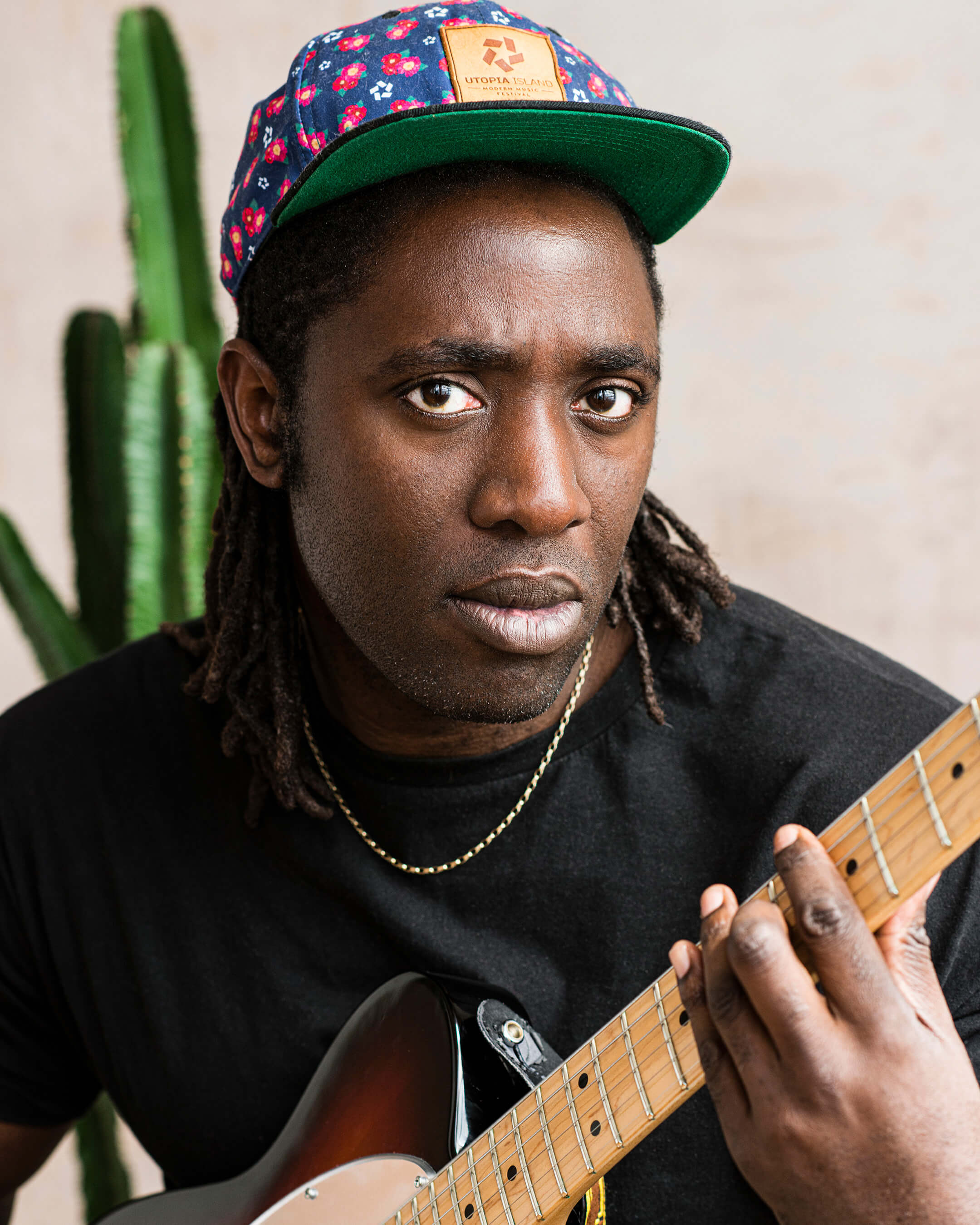
Making waves
Up in the makeshift music room at the top of his house, Okereke worked quickly, deciding The Waves – a solo album in the purest sense – would be crafted almost entirely from guitar loops and vocals. The whole experience proved a soothing tonic for the anxiety he’d been feeling as the disturbing swirl of bad news events gathered momentum daily.
“I’m so thankful that before lockdown, I’d been talking to my guitar tech Rich about having a setup at home where I could split the signal from my pedalboard to two amps and have them play against each other,” he says. “I’d never done something which is just guitar, so why not take it to its logical extreme, take everything off and have it just be guitar tones and textures?
“Why not take it to its logical extreme and have it just be guitar tones and textures?”
“It all had to be performed as it was written, I didn’t want lots of overdubs to take up space. In taking the drums off, taking away that insistent locked-in rhythm, you’re able to let rhythms cross and bubble over each other, creating a sense of movement. I was obsessed with this idea of how do I connote rhythm without using percussive instruments?”
While Okereke is guarded about the specifics of his setup, the main guitar on The Waves is a humbucker-equipped sunburst 2002 MIM Telecaster, with occasional appearances from his Thinline Tele and a 2016 Gretsch Electromatic G5422T. He reveals he’s fallen for the darker, more rounded tones of the Tele’s neck pickup. “Having the humbucker bridges the deep warmth and bright angularness of a Tele,” he enthuses, “it’s nice to have that range of extremes.”
Further tonal possibilities were offered by the presence of both a Vox AC30 and a Fender Blues Deluxe, with the pedals scattered around the floor of his home studio including a Line 6 DL4, Boss RV-5 Digital Reverb, TR-2 Tremolo, RC-20XL Loop Station and Turbo Distortion, plus an Electro-Harmonix POG, Synth9 and a pair of Big Muffs.
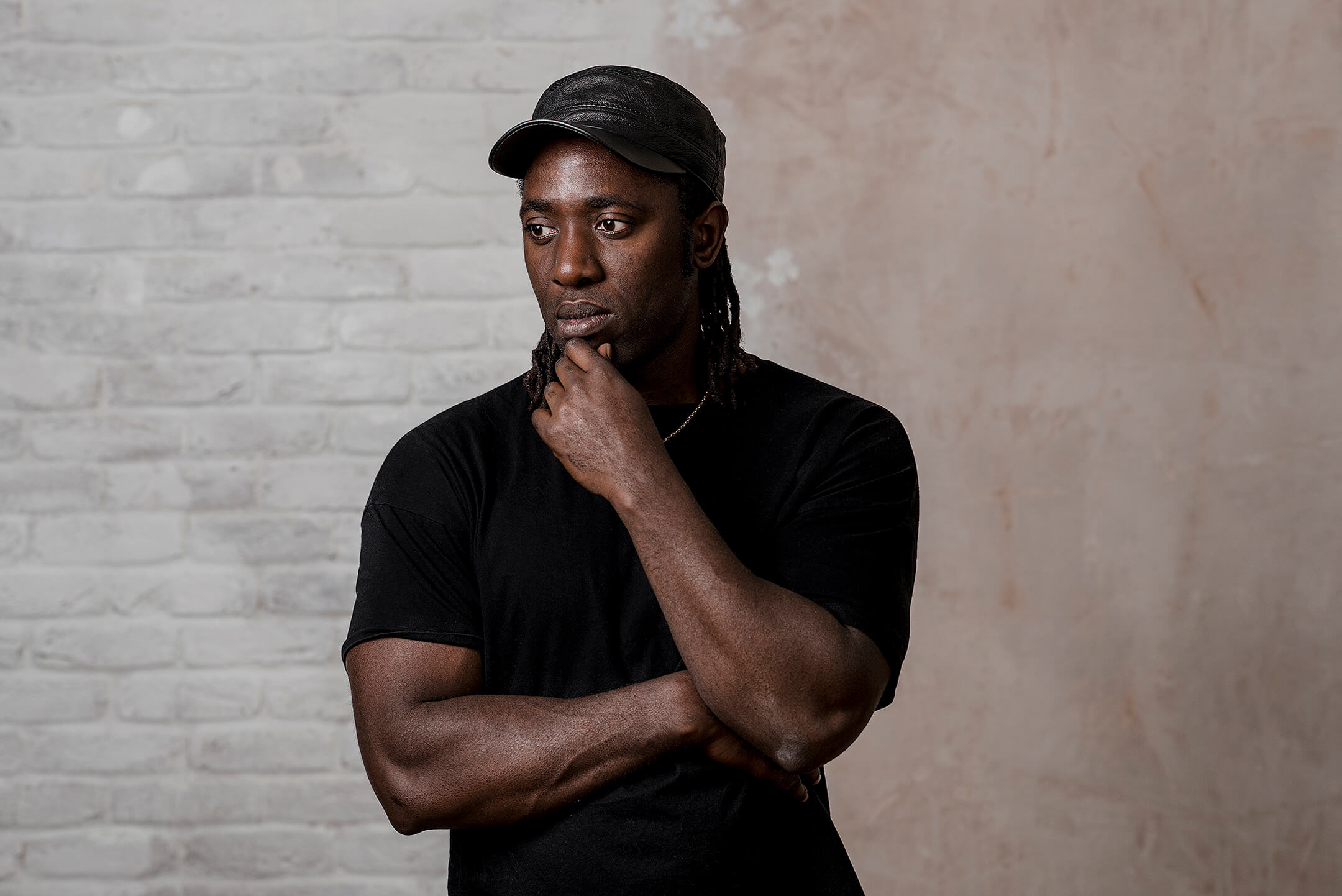
“The majority of the looping, I rely on the DL4, which are hard to get now, but luckily we have a bunch in storage,” he says. “I like them because they’re quite responsive and easy to use. I don’t use any kind of click or clock, which is challenging but exciting. That’s been a new way of playing for me.”
From the luxuriant open chords and orbital scalic patterns of opener Message From The Spirit World, The Waves is a blissfully immersive experience. On They Didn’t See It Coming, chattering palm-muted rhythms and hypnotic interlocking fretboard phrases provide the foundation as Okereke ventures out into the night, meeting only a pair of foxes “holding court”.
“If I’m honest, Silent Alarm is not my favourite Bloc Party record. But I understand that for a lot of people it means something”
Dungeness introduces shimmering pitch-shifted lead lines and on reflective single Nineveh icy riffs dance kinetically around sonorous piano chords. The crystalline looped arpeggios and coruscating highlights on instrumental The Heart Of The Wave are most beatific of all, while a cover of Bronski Beat’s Smalltown Boy sounds as if it belongs to Okereke, his mournful falsetto complemented by the Tele’s glacial chime. In fact, much of The Waves is characterised by unadulterated clean tones, with distortion, drums and bass conspicuous by their absence. It leaves Okereke’s playing nakedly exposed, a brave move for a guitarist accustomed to a supporting role.
“A guitarist I came back to a lot was David Pajo from Slint,” he explains. “I was listening a lot to his solo stuff and there’s a record called Live From A Shark Cage that I’ve kept coming back to – minimal instrumental guitar work. The guitar I like tends to be bright clean tones, and the guitarists I like play with that clarity. Robert Fripp, Isaac Brock from Modest Mouse – his playing has a tenderness and violence that’s inspiring – and Vini Reilly from the Durutti Column.”
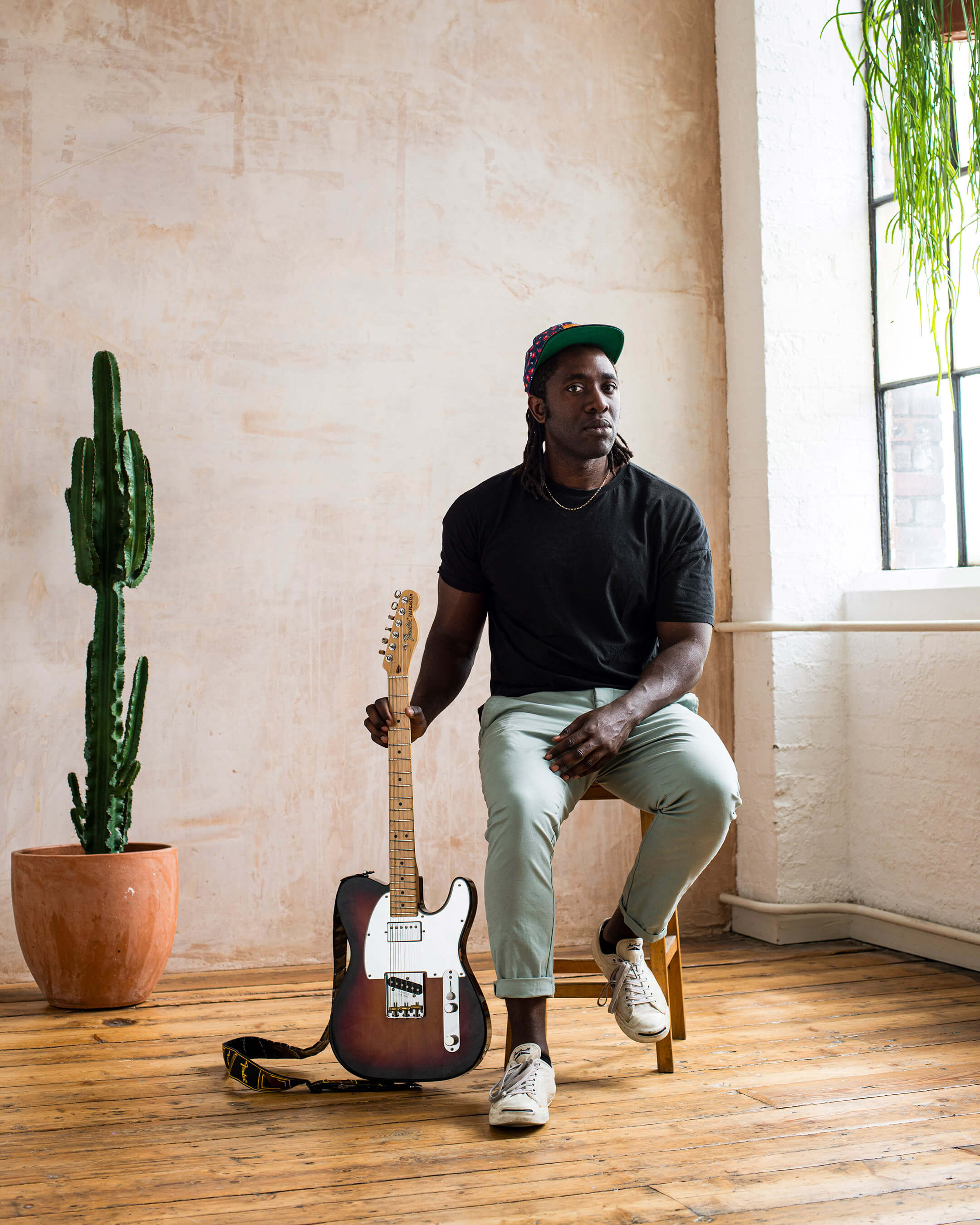
On the bloc
As our phone conversation winds its way through an unseasonably chilly spring afternoon, Okereke is a thoughtful and engaging subject. He’s anticipating eagerly the rescheduled Bloc Party album sessions, slated for late May until the middle of July. The new album will be the band’s first since 2016’s Hymns and they return to the studio enlivened by the Silent Alarm shows they played in 2018 and 2019. A decade and a half since the release of their debut, Okereke struggles to articulate what it means to him.
“When we had to relearn it, it was fun because it took me back to the start, when we were writing these songs in practice rooms,” he offers. “It was a nice trip down memory lane. I don’t know what I feel about it, is the honest answer. It’s a record I’m proud of, but listening to it now I just hear the things we didn’t do right, that’s the same with every record I’ve made. If I’m honest, it’s not my favourite Bloc Party record, but I understand that for a lot of people it means something.”
While Okereke is excited to see the energy sparked by revisiting Silent Alarm feed into their sixth album, will there be room for his new-found interest in cycling guitar loops?
“The loop-based playing on The Waves is out of necessity because I didn’t have other musicians to play with,” he answers. “In Bloc Party, I don’t think it would feel the same if everything is cycling. There’s a beauty in that kind of frenetic energy that I don’t think this sort of playing lends itself to.
“Before the first lockdown, all this music was written and it was its own thing that was a crystallisation of where we were as a band. We’d just done a year of performing our first album, that experience lit a fire in all of us, and that was clear in the music we were making. I don’t know that I want us to make a whole new record because I feel like where we were at was a really good place, but let’s see what the energy is like when we’re all in the room.”
And beyond the next chapter in Bloc Party’s story, Okereke is already formulating plans for another solo album. What’s certain is it will be another guitar-centric record, as he continues to embrace the art of playing the instrument he first picked up in his sister’s bedroom all those years ago.
“I realised as I was finishing writing the Waves Part 1, there’s a whole other world to explore and I guess that’s the perspective for the follow-up. If this record is about calming me down and gently taking people somewhere else, Part 2 is going to be the opposite – waking people up. Still just guitar loops and voice, but there’s a whole other, more synthetic, more industrial place to go to that I’m kind of obsessed with. How do I use this setup to make music to wake people up, dance and move?”
The Waves Pt 1 is out now on KOLA.
